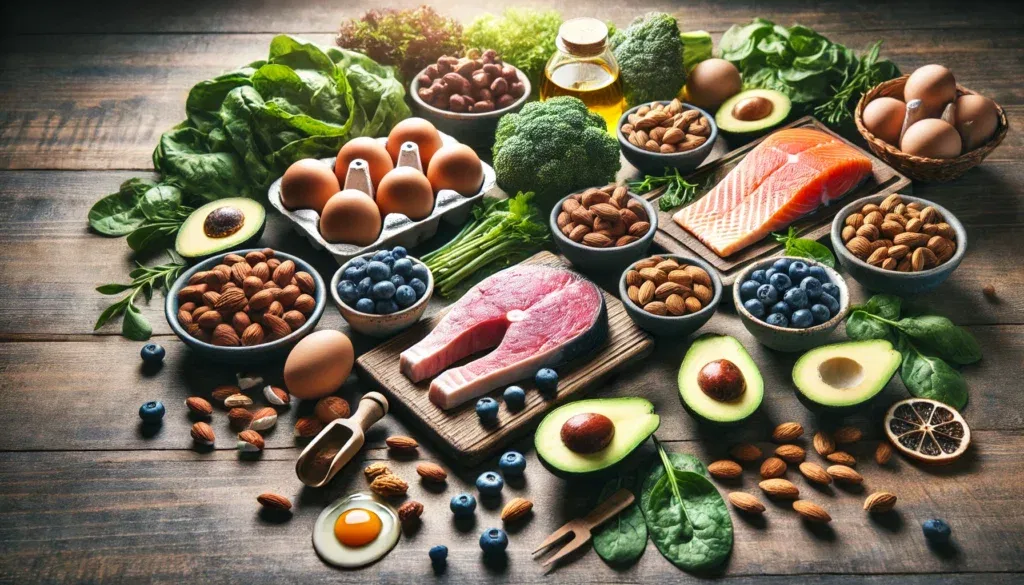Understanding Testosterone and Its Role in Men’s Health
Testosterone is a vital hormone that plays a crucial role in men’s overall health, influencing everything from muscle mass and bone density to mood and libido. It is primarily produced in the testes and is responsible for the development of male characteristics such as facial hair, deep voice, and increased muscle mass. However, as men age, testosterone levels naturally decline, leading to various symptoms that may affect quality of life. Recognizing the significance of maintaining optimal testosterone levels is essential for those who wish to sustain vitality, strength, and mental clarity.
You may also like: Which of the Following Is True of Testosterone? Debunking Myths and Unveiling Scientific Facts
Low testosterone symptoms can manifest in several ways, including decreased energy, loss of muscle mass, increased body fat, reduced libido, and mood disturbances. These signs of low testosterone can significantly impact daily life, making it crucial to address hormonal imbalances. Understanding how to naturally increase testosterone and taking proactive steps to optimize levels can help prevent the undesirable effects associated with testosterone decline.

Recognizing Low Testosterone Symptoms in Men
Identifying low testosterone symptoms in men is the first step toward taking corrective measures. While testosterone levels naturally decrease with age, drastic declines can lead to significant health challenges. Common signs of low testosterone include chronic fatigue, irritability, depression, reduced sexual desire, and difficulty maintaining erections. Men experiencing these symptoms should consider testing their hormone levels to determine if they fall within the normal range.
Aside from psychological effects, low testosterone can contribute to physical changes such as reduced muscle tone, increased body fat, and decreased bone density. Some men may also experience sleep disturbances, which can further exacerbate hormonal imbalances. Understanding how to tell if you have low testosterone involves paying attention to these physical and emotional changes, seeking professional evaluation if necessary, and implementing lifestyle changes that promote hormonal balance.
Natural Ways to Boost Testosterone Levels
For those wondering how to naturally increase testosterone, various science-backed strategies can help improve hormone production. Diet, exercise, sleep quality, stress management, and environmental factors all play a role in maintaining healthy testosterone levels. By making targeted changes in these areas, men can optimize their testosterone levels without relying on synthetic hormones or medications.
One of the best ways to increase testosterone naturally is through diet. Consuming nutrient-dense foods that support testosterone production, such as lean proteins, healthy fats, and micronutrient-rich vegetables, can significantly impact hormone balance. Additionally, engaging in strength training and high-intensity interval training (HIIT) can stimulate testosterone production, as resistance exercises are known to enhance muscle synthesis and hormonal response.
Optimizing Diet for Increased Testosterone
What you eat can significantly affect testosterone production. Certain foods are known to support hormone synthesis, while others can lower testosterone levels. For example, consuming sufficient amounts of zinc, vitamin D, and magnesium has been shown to aid in testosterone production. Oysters, eggs, fatty fish, and leafy greens are excellent sources of these nutrients, making them ideal for inclusion in a testosterone-boosting diet.
On the other hand, processed foods, excessive sugar, and trans fats can negatively impact hormone levels. Avoiding these dietary culprits and focusing on whole, nutrient-rich foods can create an optimal environment for testosterone production. Additionally, intermittent fasting and maintaining a balanced macronutrient intake can help regulate insulin levels and support hormonal balance.
Exercise Strategies to Maximize Testosterone Production
Strength training, particularly compound movements such as squats, deadlifts, and bench presses, is one of the most effective ways to build testosterone. Engaging in resistance training at least three times per week can help raise testosterone levels naturally. HIIT workouts are also beneficial, as they provide short bursts of intense activity that trigger hormonal responses.
Consistency is key when implementing an exercise regimen to increase testosterone. Balancing weight training with adequate recovery time is crucial, as overtraining can lead to elevated cortisol levels, which may suppress testosterone production. By incorporating progressive overload, maintaining proper form, and allowing sufficient rest, men can optimize their workouts for hormonal health.
Sleep and Testosterone: The Critical Connection
Sleep quality is a major determinant of hormonal health. Testosterone production primarily occurs during deep sleep cycles, making it essential to get seven to nine hours of quality rest each night. Poor sleep hygiene can lead to decreased testosterone levels, increased stress, and impaired cognitive function.
To improve sleep quality, consider creating a bedtime routine that includes minimizing blue light exposure, maintaining a cool and dark sleep environment, and avoiding stimulants before bedtime. Proper sleep hygiene not only supports testosterone production but also enhances overall well-being and longevity.
Managing Stress to Prevent Testosterone Decline
Chronic stress is a significant factor that can lower testosterone levels. When the body is under prolonged stress, it produces high levels of cortisol, which negatively impacts testosterone production. Learning to manage stress through mindfulness, meditation, and relaxation techniques can help balance hormone levels.
Engaging in activities that promote relaxation, such as spending time in nature, practicing deep breathing exercises, or engaging in hobbies, can mitigate stress and support testosterone optimization. Reducing stressors and improving mental resilience can lead to better hormonal balance and overall health.
Environmental Factors That Influence Testosterone Levels
Environmental toxins, including endocrine-disrupting chemicals found in plastics, pesticides, and personal care products, can interfere with testosterone production. Reducing exposure to these harmful substances by using glass or stainless steel containers, choosing organic produce, and selecting natural grooming products can help maintain hormonal health.
Additionally, limiting alcohol consumption and avoiding excessive exposure to environmental pollutants can further support testosterone levels. Making conscious choices to minimize toxin exposure can have a profound impact on long-term hormonal balance.

Frequently Asked Questions (FAQ) on Increasing Testosterone Naturally
1. How can you tell if you have low testosterone?
Recognizing low testosterone symptoms requires a combination of physical, mental, and emotional awareness. Common signs of low testosterone include chronic fatigue, reduced muscle mass, increased body fat, and a noticeable decline in libido. Additionally, men with low testosterone symptoms in men may experience mood swings, depression, or difficulty concentrating. If these symptoms persist, a blood test measuring total and free testosterone levels can confirm a deficiency. Consulting a healthcare professional is crucial to determine if lifestyle changes or medical interventions are necessary.
2. What is a dangerously low testosterone level?
A dangerously low testosterone level is typically below 300 nanograms per deciliter (ng/dL), according to the American Urological Association. However, symptoms can occur at higher levels depending on individual differences. Extremely low levels, especially under 200 ng/dL, can lead to osteoporosis, severe fatigue, and cardiovascular risks. Men with low free testosterone in males may also struggle with insulin resistance and metabolic disorders. If you suspect you have low testosterone symptoms, seeking professional evaluation is essential for proper management.
3. What lowers testosterone levels the most?
Several factors contribute to declining testosterone levels, including chronic stress, poor sleep, and excessive alcohol consumption. High sugar intake and processed foods can also negatively impact testosterone production. Environmental toxins, such as endocrine disruptors found in plastics, pesticides, and personal care products, may also suppress natural testosterone synthesis. Additionally, a sedentary lifestyle contributes to hormonal imbalances, making it essential to adopt natural ways to boost testosterone through regular exercise and proper nutrition. Understanding what lowers testosterone helps in mitigating its negative effects.
4. How to naturally increase testosterone in women?
Women also produce testosterone, albeit in smaller amounts, and a deficiency can result in fatigue, low libido, and muscle weakness. How to naturally increase testosterone in women includes consuming nutrient-rich foods such as lean proteins, healthy fats, and zinc-rich sources like nuts and seeds. Strength training and high-intensity workouts also play a significant role in increasing testosterone levels. Reducing stress and prioritizing quality sleep further support hormone balance. If symptoms persist, medical professionals may recommend bioidentical hormone therapy or lifestyle modifications.
5. What are the best testosterone foods?
Certain foods are known to naturally enhance testosterone production. Lean proteins such as grass-fed beef, free-range eggs, and fatty fish support hormonal health. Nuts and seeds, particularly almonds, walnuts, and pumpkin seeds, provide essential minerals like zinc and magnesium, which help increase testosterone hormone naturally. Leafy greens such as spinach and kale contain compounds that reduce estrogen levels, allowing testosterone to function optimally. Incorporating these testosterone foods into your diet can be a simple yet effective strategy to build testosterone levels.
6. How to maximize testosterone levels quickly?
For those looking to increase testosterone levels quickly, focusing on short-term and long-term strategies is key. High-intensity interval training (HIIT) has been shown to elevate testosterone production rapidly. Intermittent fasting and cold exposure, such as ice baths, may also contribute to short-term hormonal boosts. Reducing inflammation through an anti-inflammatory diet, rich in omega-3 fatty acids and antioxidants, helps raise free testosterone levels. Additionally, eliminating processed foods and refined sugars can significantly improve hormone balance within weeks. Implementing these tactics consistently will yield lasting results.
7. How to tell if you have low testosterone without a blood test?
While a blood test is the most definitive way to diagnose low testosterone symptoms, there are noticeable indicators that suggest a deficiency. Chronic fatigue, loss of muscle mass, and unexplained weight gain can be strong warning signs. A decrease in motivation, frequent mood swings, and poor sleep quality are also potential indicators. Sexual dysfunction, including reduced libido or erectile difficulties, is another red flag. If you’re experiencing multiple hypogonadism symptoms, it may be worth adopting natural ways to boost testosterone before opting for medical intervention.
8. What are the best ways to naturally increase testosterone?
The best way to increase testosterone naturally involves a multifaceted approach. Strength training, particularly compound movements like squats and deadlifts, is highly effective. Prioritizing high-quality sleep of at least seven to eight hours per night helps regulate hormonal production. Nutrient-dense foods rich in healthy fats, vitamins, and minerals support natural testosterone synthesis. Managing stress through meditation, deep breathing, and mindfulness reduces cortisol, a hormone that suppresses testosterone. Consistency in these habits is key to achieving long-term hormonal balance.
9. Can females benefit from testosterone-boosting strategies?
Yes, women require balanced testosterone levels for overall health, and how to increase testosterone in females naturally is a growing area of interest. Testosterone is essential for bone density, muscle tone, and libido in women. Strength training, consuming healthy fats, and ensuring adequate vitamin D and zinc intake are effective strategies. Additionally, reducing stress and incorporating mindfulness techniques can support hormonal balance. While women need significantly lower testosterone levels than men, optimizing production can enhance energy, metabolism, and overall well-being.
10. What is the 15-second hack to detox testosterone?
The 15-second hack to detox testosterone refers to quick, daily habits that support optimal testosterone function. One effective method is deep breathing exercises that lower stress and cortisol levels, allowing testosterone to thrive. Another quick strategy is exposing the body to natural sunlight for vitamin D synthesis, which is crucial for testosterone production. Additionally, consuming a morning drink of lemon water with a pinch of Himalayan salt can help balance electrolytes and support adrenal function. While no shortcut can replace long-term healthy habits, small consistent actions contribute to hormonal balance. Incorporating these techniques with ways to naturally increase testosterone leads to sustainable benefits.

Conclusion: Taking Control of Testosterone Health Naturally
Understanding how to increase testosterone naturally requires a holistic approach that includes optimizing diet, engaging in regular exercise, improving sleep quality, managing stress, and reducing exposure to harmful environmental factors. By implementing these science-backed strategies, men can effectively raise testosterone levels, enhance overall well-being, and improve longevity.
For those experiencing persistent low testosterone symptoms, seeking professional guidance and undergoing hormone testing can provide valuable insights into individual needs. Taking proactive steps to build testosterone naturally not only supports physical and mental health but also ensures a higher quality of life well into the later years. Prioritizing these lifestyle modifications can empower men to take control of their hormonal health and experience the benefits of optimal testosterone levels.
testosterone optimization strategies, natural hormone balance, boosting male vitality, increasing androgen levels, men’s health and fitness, strength training for hormones, testosterone-boosting foods, endocrine system support, lifestyle changes for hormone health, male energy enhancement, natural ways to improve hormones, fitness and hormone regulation, anti-aging for men, workout routines for testosterone, sleep and hormonal health, reducing cortisol for better hormones, diet and testosterone production, stress reduction for hormonal balance, maximizing physical performance, holistic approaches to male health
Further Reading:
8 Proven Ways to Increase Testosterone Levels Naturally
Best foods for increasing low testosterone
Natural Ways to Boost Testosterone
Disclaimer: The information provided in this article is for general informational purposes only. The content does not constitute professional advice of any kind, including but not limited to medical, legal, or financial advice. HisHealthMag and its contributors make no representations or warranties regarding the accuracy, completeness, or reliability of the information presented. Always seek the advice of a qualified professional for any specific concerns or questions you may have. Neither HisHealthMag nor its authors assume any responsibility or liability for any actions taken based on the information provided in this article. The views and opinions expressed are those of the author(s) and do not necessarily reflect the official policy or position of HisHealthMag.





